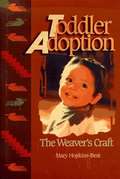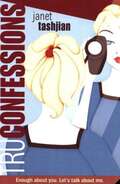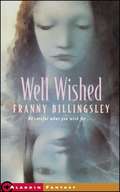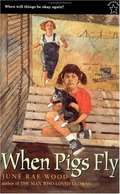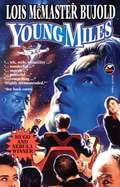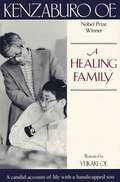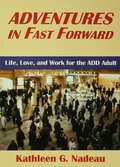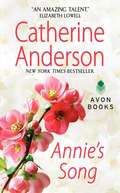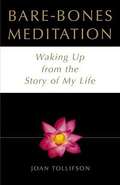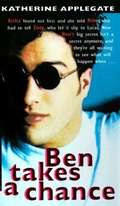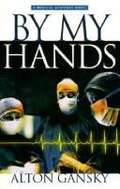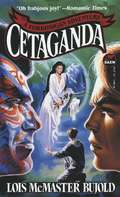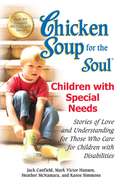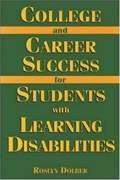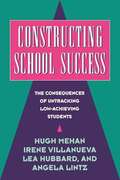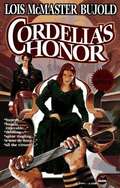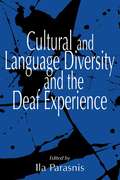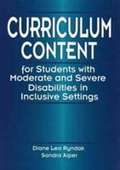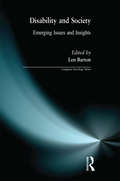- Table View
- List View
Toddler Adoption: The Weaver's Craft
by Mary Hopkins-BestAdvice for parents and others involved with international or domestic adoption of a toddler with or without other special needs.
Tru Confessions
by Janet TashjianWish #1: To have my own television show. <p>Wish #2: For Eddie to be un-handicapped. (Eddie is my twin Brother.) <p>Wish #3: I don't really want anything else this year (except maybe to go out with Billy Meier). <p><p>Do wishes really come true? When Trudy Walker sees the ad from the local cable station, she truly believes they do. The station is looking to air demo tapes of shows created by and for teens. This could be Tru's big Break! But lately Tru is distracted by Wish #2. <p><p>She spends hours researching cures for Eddie online and filming his daily routine. If Tru becomes a star, if she just grows up, will she outgrow Eddie? Can she pursue her dreams and still be true to herself? Or is it all just wishful thinking
Wall-To-Wall Thanksgiving
by Kenneth JerniganThis is the thirteenth book in the Kernel Series. Its chapters are: Don't Throw the Nickel Boy Was I Bamboozled Lessons from the Charcoal Pit Concerning Books, Lawn Mowers, and Bus Rides Children, Fruitcake, and Rectangles The Wall-to-Wall Thanksgiving Meeting the Challenge Daddy Read Me Walking the Balance Beam Big Enough to Ride the Bike and, of course, Dr. Jernigan's introduction, which ties together the featured vignettes. Other books in this series are available from Bookshare.
Well Wished
by Franny Billingsley"A coin for passage to your heart's desire," says Agnes, Guardian of the Wishing Well in the village of Bishop Mayne. "That is the first rule." But Nuria doesn't think she needs a wish. Wishing on the Well is dangerous. Wishes often go wrong. That's why there are no other children around. A wish-gone-wrong took them all away. But now, because her grandfather, the Avy, has wished for them to come back, Nuria is sure that the one thing she wants -- a friend her own age -- will soon be there. "One wish each lifetime," says Agnes. "One cycle of the moon to repent and call it back. That is the second rule." Only a fool would make a wish that needs to be called back, Nuria thinks. But that's before she meets Catty Winter, who cannot walk, whose legs are mysteriously crippled. "Make a wish for me," Catty pleads. And Nuria is tempted. But what if the wish goes wrong? "And for that cycle of the moon your lips are locked in this: To no one may you speak of your wish. To no one but to me, for your wish is my wish too. That is the third rule." Nuria has given little thought to the third rule. But there come moments when she wishes it did not exist. The Wishing Well, she is trickier than anyone has known. The Wishing Well in Bishop Mayne has a mind of its own and creates problems for all who try to use its power. Few have gotten anything but misery from it. Knowing this, however, does not keep Nuria, in a time of dire need, from trying to accomplish what few others have managed. Beauty and greed, warmth and cold, walk hand in hand in this unusual fantasy to create an adventure filled with friendship, challenge, and the magic of love.
When Pigs Fly
by June Rae WoodBuddy's life has never been easy--between caring for Reenie, her younger sister born with Down's Syndrome, and watching her parents struggle to pay the bills, she barely has time for normal teenage worries. But when her parents decide to sell their house and move the family to a dilapidated old farm, Buddy thinks pigs will fly before she's happy again. The old farmhouse, however, holds some surprising secrets that may make Buddy realize her family's richness.
Young Miles (Miles Vorkosigan)
by Lois Mcmaster Bujold3 stories: The Warrior's Apprentice, The Mountains of Mourning, and The Vor Game. More adventures of Miles Vorkosigan aka Admiral Naismith.
A Healing Family: A Candid Account of Life with a Handicapped Son
by Stephen Snyder Kenzaburo OëA Healing Family, Kenzaburo Oë's first book since winning the Nobel Prize for Literature, is an intimate portrait of the people closest to him. Above all, it is about his son Hikari. Hikari was born in 1963 with a growth on his brain so large it made him look as if he had two heads. His parents were told he might never be more than a "human vegetable" requiring constant care; but they took the decision to raise him. Today, despite autism, poor vision, and a tendency to seizures, their son is an established composer with two successful CDs to his credit. Oë has often written about the sorrows and satisfactions of being the parent of a handicapped child, most memorably in A Personal Matter; but nowhere has his writing been more personal, more buoyant, more revealing than in this non-fiction work. Without diminishing the suffering that Hikari and his family have been through, he celebrates the victories that can be won, especially his son's gift for music--his own "language." Friends make an appearance along the way--doctors, musicians, other writers--as do the themes that have preoccupied Oë all his life: the rights of the underprivileged; the moral authority of the survivors of the atomic bombing; the mystery of language. But his thoughts keep circling back to his family--to the healing power of the family, and the unwitting courage we can all find in ourselves.
A Volcano in My Tummy: Helping Children to Handle Anger--A Resource Book for Parents, Caregivers and Teachers
by Eliane Whitehouse Warwick PutneyFrom the book jacket: Children often have problems with anger. Teachers often have problems with anger. Parents often have problems with anger. Why? Because we're afraid of anger. It may mean that someone is out of our control. It may mean that someone won't like us. It may mean that someone acts violently. This book is about living successfully, healthily, happily, nonviolently, with motivation, without fear and with good relationships. An accessible resource book for teachers, parents and all who care for children, it is full of stories, and easy-to-use games and exercises designed to encourage children to see their anger and to deal constructively with it. A Volcano in My Tummy includes sections on key concepts, building a child's self esteem, what adults can do when a child is angry, developing an anger management program, troubleshooting, and a special section for teachers that integrates the resource with other curriculum areas. Exercises are clearly described, indicating appropriate age levels, teaching strategies, materials and procedures to follow, with worksheets for the childrens' use. All are easily adaptable for use by teachers, parents or other caregivers.
Adventures In Fast Forward: Life, Love and Work for the Add Adult
by Kathleen G. NadeauWritten in response to common questions posed by adults with ADD in the author's clinical practice - and for all adults with ADD, as well as those who care about them - this book is designed as a clear and practical guide for day-to-day life. The author's perspective is one of compassionate realism as she answers specific questions related to understanding and accommodating ADD whether making daily decisions or larger life choices.
Annie's Song
by Catherine AndersonAnnie Trimble lives in a solitary world that no one enters or understands. As delicate and beautiful as the tender blossoms of the Oregon spring, she is shunned by a town that misinterprets her affliction. But cruelty cannot destroy the love Annie holds in her heart. Alex Montgomery is horrified to learn his wild younger brother forced himself on a helpless "idiot girl." Tormented by guilt, Alex agrees to marry her and raise the babe she carries as his own. But he never dreams he will grow to cherish his lovely, mute, misjudged Annie-her childlike innocence, her womanly charms and the wondrous way she views her world. And he becomes determined to break through the wall of silence surrounding her-to heal...and to be healed by Annie's sweet song of love.
Assistance Dog Providers in the United States: A Complete Guide to Finding a Guide, Hearing, or Service Dog
by Carla Stiverson Norm PritchettThis book offers excellent information of guide, service and hearing alert dogs and schools and organizations that train them in the United States. offers information on obtaining a working dog, what the different tasks that the dog do, and gives a list of addresses and contacts.
Bare Bones Meditation: Waking Up from the Story of My Life
by Joan TollifsonBorn with only one hand, Joan Tollifson grows up feeling different, finds identity as a bisexual lesbian and a disability rights activist, but also sinks into drug addiction and alcoholism. She embraces Zen Buddhism and then a very bare-bones spirituality that has no form. Bare-Bones Meditation reveals the inner process of the mind in a new way, and Tollifson's account is beautifully written--intense and from the heart.
Beginnings and Blueprints
by Kenneth JerniganThis is a motivational book showing that blind individuals can live productive lives doing the things that sighted people do and even succeed at it!
Ben Takes a Chance (Making Out, Book 11)
by Katherine ApplegateBen and Nina are going beyond making out as the day for Ben's eye surgery approaches. First they have to get through Christmas. The surgery could make Ben's blindness a problem of the past. The island kids are uncertain about their relationships. There's a lot on their minds besides Santa. Christopher is set up to leave for the Army. For Christmas he wants a yes to his marriage proposal from Aisha. Aisha loves Christopher but thinks the middle of her senior year is a little soon to be planning her wedding. Zoey is heart broken that Lucas is angry at her for making out with Aaron, but at the same time she's attracted to Aaron and he's encouraging her. Meanwhile Claire is sure Aaron is the man for her even though Aaron hasn't shown any interest beyond glancing at her legs. With Jake and Lara, sleeping together isn't about love. It's more about the alcohol and drugs that can ruin their lives. Once you've seen them through Christmas, find out what awaits them in the new year in Claire Can't Lose, Making Out #12. You can read More of the Making Out series books in Bookshare collection. They are: #1 Zoey Fools Around, #2 Jake Finds Out, #3 Nina Won't Tell, #4 Ben's In Love, #5 Claire Gets Caught, #6 What Zoey Saw, #7 Lucas Gets Hurt, #8 Aisha Goes Wild, #9 Zoey Plays Games, #10 Nina Shapes Up, #11 Ben Takes A Chance, #12 Claire Can't Lose, #13 Don't Tell Zoey, #14 Aaron Lets Go, #15 Who Loves Kate?, #16 Lara Gets Even, #17 Two Timing Aisha, #18 Zoey Speaks Out and #19 Kate Finds Love. With more to come.
By My Hands
by Alton L. GanskySomething strange is happening at Kingston Memorial Hospital, and Dr. Rachel Tremaine has been ordered to get to the bottom of it. All she has to go on is the Fact that several patients have been healed--completely, and without medical intervention! While others may consider it "miraculous," Rachel's highly trained, scientific mind is unwilling to concede that. And the hospital wants answers--believable answers! When one of Rev. Adam Bridger's parishioners is suddenly healed-- and subsequently disappears--he launches his own investigation. Who is behind these mysterious healings, and why do the healed patients all seem to vanish? Is this an act of God or an incredible hoax? Rachel and Adam make the most unlikely of teams. But though they have little in common, they both have a lot of questions-- especially when it comes to miracles. And the search for answers may be far more dangerous than either is prepared for.
Cetaganda (Miles Vorkosigan #9)
by Lois Mcmaster BujoldMiles and his cousin Ivan attend a Cetagandan state funeral and are caught up in Cetagandan internal politics.
Chicken Soup for the Soul Children with Special Needs
by Jack Canfield Mark Victor Hansen Heather Mcnamara Karen SimmonsRaising a child with special needs is a lifelong commitment that is as unique as each person who embarks on it. Written by a variety of authors who share in this distinctive relationship, Chicken Soup for the Soul Children with Special Needs offers a glimpse into the lives of others who are on a similar path. These stories provide insight, comfort, and connection with others who have walked this powerful and transformational journey. The authors of these candid stories relate their own experiences of adjusting, reaching out, and flourishing and share their universal worries, their tears, and the laughter that come with this extraordinary relationship. Most important, through these stories, you will be guided with the wisdom of fellow parents, caregivers, and those with special needs to help you be the very best parent or caregiver you can be.
Chicken Soup for the Soul Children with Special Needs: Stories of Love and Understanding for Those Who Care for Children with Disabilities
by Jack Canfield Mark Victor Hansen Heather Mcnamara Karen SimmonsRaising a child with special needs is a lifelong commitment that is as unique as each person who embarks on it. Written by a variety of authors who share in this distinctive relationship, Chicken Soup for the Soul Children with Special Needs offers a glimpse into the lives of others who are on a similar path. These stories provide insight, comfort, and connection with others who have walked this powerful and transformational journey. The authors of these candid stories relate their own experiences of adjusting, reaching out, and flourishing and share their universal worries, their tears, and the laughter that come with this extraordinary relationship. Most important, through these stories, you will be guided with the wisdom of fellow parents, caregivers, and those with special needs to help you be the very best parent or caregiver you can be.
College and Career Success for Students with Learning Disabilities
by Roslyn DolberThis book offers advice for choosing a college and getting accepted, facing the challenges of coursework, and assessing job options.
Constructing School Success: The Consequences of Untracking Low Achieving Students
by Angela Lintz Lea Hubbard Irene Villanueva Hugh MehanBolstering the academic success of low achieving students and providing a more egalitarian classroom setting are two constant challenges to our schools. This book describes the process of "untracking", an educational reform effort that has prepared students from low income, linguistic and ethnic minority backgrounds for college. Untracking offers all students the same academically-demanding curriculum while varying the amount of institutional support they receive. This book is a highly readable account of a successful school reform effort. It provides systematic research results concerning the educational and social consequences of untracking previously low achieving students, and will be of great importance to researchers in educational and social psychology.
Cordelia's Honor (Cordelia Naismith Omnibus)
by Lois Mcmaster Bujold2 stories: Shards of Honor, and Barrayar, forming a continuous story of the life of Cordelia Vorkosigan nee Naismith, Miles' mother. Winner of the Hugo Award.
Cultural and Language Diversity and the Deaf Experience
by Ila ParasnisThis edited volume provides a comprehensive analysis of deaf people as a culturally and linguistically distinct minority group within American society. Many educators, linguists, and researchers now favor this position, as opposed to that which states that a deaf person simply has an audiological disability. Contributors to this book include members of the deaf community, as well as prominent deaf and hearing educators and researchers. The text contains three sections, covering research on bilingualism and biculturalism, the impact of cultural and language diversity on the deaf experience, and first-hand accounts from deaf community members that highlight the emotional impact of living in the deaf and hearing worlds.
Curriculum Content for Students with Moderate and Severe Disabilities in Inclusive Settings
by Diane L. Ryndak Sandra K. AlperThis book provides a complete description of a process through which collaborative education teams can identify appropriate functional and general education curriculum content for readers with moderate or severe disabilities who are included in general education settings.
Disability and Society: Emerging Issues and Insights (Longman Sociology Series)
by Len BartonThe study of disability has traditionally been influenced mainly by medical and psychological models. The aim of this new text, Disability and Society, is to open up the debate by introducing alternative perspectives reflecting the increasing sociological interest in this important topic.Disability and Society brings together for the first time some of the most recent original research in this rapidly expanding area. The contributors, both disabled and non-disabled, are all leading thinkers in their field and suggest new ways of understanding disability, developing policy and challenging current practice.
